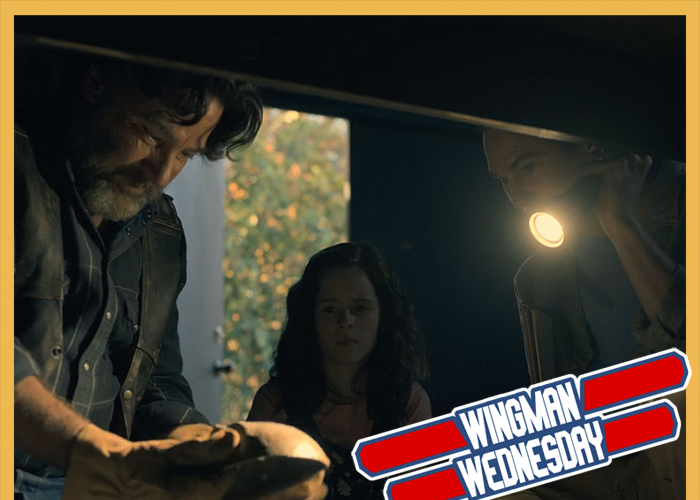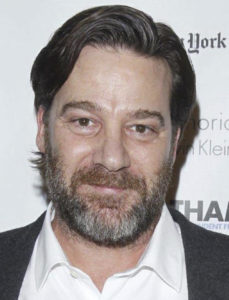
There is a lot to get lost in when sitting down to binge the Netflix series “The Haunting of Hill House,” a family drama/horror hybrid based on the 1959 Shirley Jackson novel and reimagined by filmmaker Mike Flanagan. The element of the nail-biter that most enamored us didn’t come from the scares or the story itself, but instead, the performance of actor Robert Longstreet, who took a supporting character in handyman Mr. Dudley and turned him into a memorable piece of an already-stellar ensemble. His mesmerizing monologue in the episode “Eulogy” was not only a highlight of the series, but one of the finest pieces of dramatic acting that we have seen in quite some time.
We recently sat down with Longstreet to discuss how he nailed the monologue in only four takes, why he’s happy to be peaking in his 50s, and the reason he can no longer leave the house without showering.
TrunkSpace: This must be a bit of a wild ride for you, from when you booked the gig as Mr. Dudley to now. What has the experience as a whole been like?
Longstreet: It started out so crazy. I got this audition and had that monologue for two days and memorized it for the audition, and then I got a call in the car driving home that they had booked me a plane ticket. I was on a flight at 5:30 the next morning and then standing in front of the mansion with Henry (Thomas) the day after that, so it was just a whirlwind.
TrunkSpace: So the monologue was what landed you the part?
Longstreet: Yeah, it was between me and a couple of people, and Anne McCarthy (the casting director) sent the takes to Mike (Flanagan), and he chose me, which was incredible.
TrunkSpace: There’s been so much love on social media for that monologue. For us, it was easily one of the most moving aspects of the season…
Longstreet: Oh, thank you so much. Yeah, I’m so proud of it. It’s overwhelming because I’ve heard from people that I haven’t heard from in years who have seen it, and I’ve definitely gotten some offers, but I’m being picky and chasing good writing. It’s just been unreal. And I’m not on any social media at all. In fact, Mike was so generous – he read me some Tweets on set last week. He said, “Do a Twitter search. There’s love for you all over the place.” And I said, I don’t even know what a Twitter search is, Mike.” (Laughter)
TrunkSpace: Well, that’s probably not a terrible thing because whenever there’s love on socials, there’s always a corner of the Web filled with negativity just for the sake of negativity.
Longstreet: I’m sure, and that’s the Devil’s bargain of that – if you believe the good stuff, you have to believe the bad, too. If I agree with a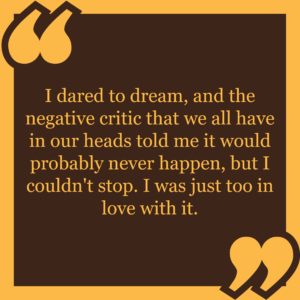 bad review or someone says something shitty about me, it crushes me.
bad review or someone says something shitty about me, it crushes me.
TrunkSpace: With this project and your work in it, we have seen nothing but good things being said.
Longstreet: Oh, I’m so glad. Thank God. Yeah, I would just dissolve. (Laughter)
TrunkSpace: You mentioned that you’re chasing good writing. With this project in particular, beyond your monologue alone, it seemed like a real actor’s project. Every actor had their moment, their own monologue, and it just felt like this was a piece that was written for actors as opposed to – and especially in the horror genre – the acting being an afterthought.
Longstreet: Right. Exactly, and those are the things that you just don’t care about. If you go to a movie and you watch 50 million people get shot and you’re not invested in any one of them, it just becomes a bore. But Mike is a real actor’s director and in a way that is kind of shocking. He’s trying to build an ensemble and a family, and he brings people back, and he says, “I’m going to give you something completely and utterly different the next time.” And you can trust him because he really does it!
And the way that he directs actors is with such gentle care. He sets it up so easy and talks to you so calmly and sweetly and is usually joking most of the time with you to try to relax you. He’s really cognizant of what actors need, and he just gives you only active direction. He doesn’t confuse you. It’s very brief, but really succinct. He just knows exactly what he wants and exactly how to make an actor comfortable to get it.
TrunkSpace: With that in mind, and going back to your monologue, was that always intended to be shot without cutaways? Was it always supposed to be JUST you?
Longstreet: Yes! I think there was a safety built into it in case it didn’t work, but that was four pages long, and we did four takes, and the fourth take is the one that’s in the show. He (Mike) came up to me after I had botched three of them… every time I got to the daughter, it was so painful, my mind would just blank out… and so he came up to me, and he said, “We’ve got it. We have got this thing, and I can cut to Henry and cut to his reactions and do it, but if you get through it once all the way, it’ll be art.” And I was like, “Well, hell, yes, let’s do that immediately.” Then we did it! He completely took the pressure off of me and said, “Let’s just do it again for shits and giggles.”
TrunkSpace: Another powerful moment that you delivered on was in the very last episode when you’re carrying your daughter out of the house. There’s just something about your body language that is… it’s such a gut punch.
Longstreet: Oh, it’s just brutal. It’s the weight of the world, and her dead weight is just sinking me down beneath the floor boards. That’s someone who’s lost everything. I feel so bad for the Dudleys. I really do. They’re just in hell.
TrunkSpace: For the viewer there was this sense of there being something ominous about the Dudleys right up to that point where you delivered the monologue in the basement. Was that always the intention?
Longstreet: That’d be a really great question for Mike. I think so. I think it was, to have them be a mystery. They’re kind of caught up in this whole thing, too, and they don’t have a lot of options. I mean, they live right there on the property! They’re old enough where I don’t see them being able to change careers or do anything different. They’re not nefarious, but they have to be very careful to dole out their information as well as they think that the current occupants of the house can handle it, or we’d be out.
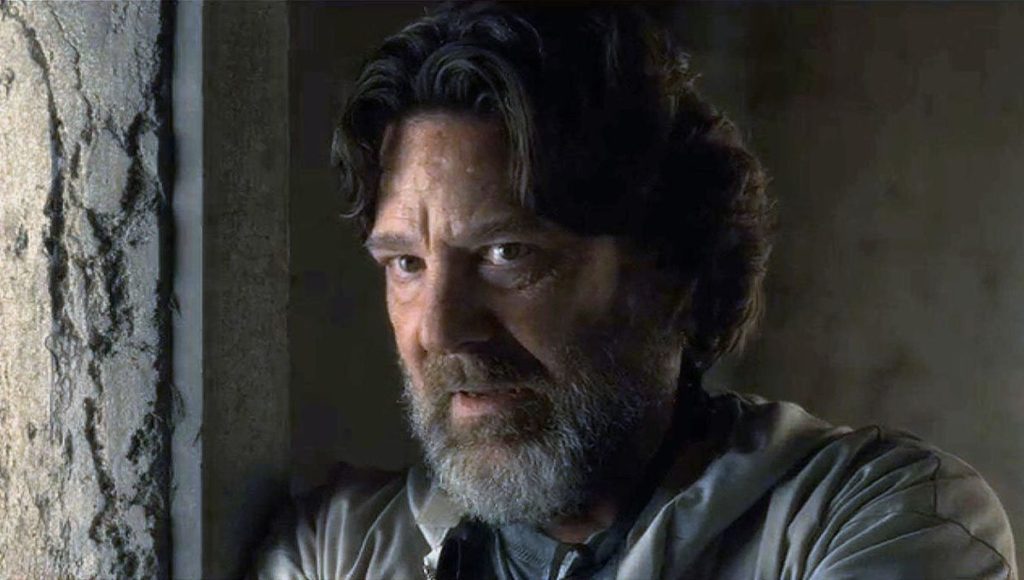
TrunkSpace: Right. If you came on too strong, you’d be out on your butts and then you would lose that connection to your first born.
Longstreet: Definitely, and I actually think there’s a loving part of them that they’re the caretakers of the house and also trying to be the caretakers of the occupants of the house because they know how bad it is. They’re playing tricks with the magic of it. They know if they get out before dark, they’re away from all the evil. We try to encourage people to pray. We try to encourage people to do little, subtle things to try to get a little more light into that house. We just have to be very careful, or we’d be out, and we’re the police of that place.
TrunkSpace: What’s so interesting is that while most of the characters had their story arcs wrap up, in a lot of ways, the Dudleys ending was really just the beginning.
Longstreet: Well, I’d better get my old ass there just in time, too. (Laughter)
TrunkSpace: Don’t drive any vehicles too fast!
Longstreet: No! God, I’m being very careful until I can make it up there myself.
TrunkSpace: Has this series been a game changer for you? Has it altered the way you’re viewing your career moving forward?
Longstreet: Oh, it definitely has. It’s the biggest thing I’ve ever done, and I’ve made like 70-something movies. Probably in the first three days, as many people saw this show as had ever seen my entire career of movies. (Laughter) So it’s a game changer that way… and becoming friends with Mike. He’s someone that I genuinely love and trust now, so that’s actually the biggest game changer. And he put me in “Doctor Sleep” immediately. He said, “We’re going to work on a million things together,” and everybody says that, and I was like, “Yeah, right, right.” And then in four months, I was working with him again, so I will never doubt that man again.
TrunkSpace: We’ve seen people call you an overnight success, but with more than 70 movies under your belt, there’s nothing overnight about that. Is that a little strange to hear, knowing how hard and how long you’ve been working?
Longstreet: Yes, but I think it’s always that way for people. I’m starting to take off in my 50s, which is so… I guess that’s better than peaking in high school, but it feels so strange. It definitely feels like it’s kicked into gear.
I would say like it’s a Sisyphean journey, but I’m Sisyphus who finally learned how to keep the rock at the top of the hill.
TrunkSpace: Peaking in your 50s has its benefits. So much of the early, adolescent self-consciousness is gone, which probably helps in this business.
Longstreet: Yes, and thank God. I didn’t start working until I had bags under my eyes. I had no character before. I looked like a doll, I think, and nobody knew what to do with me.
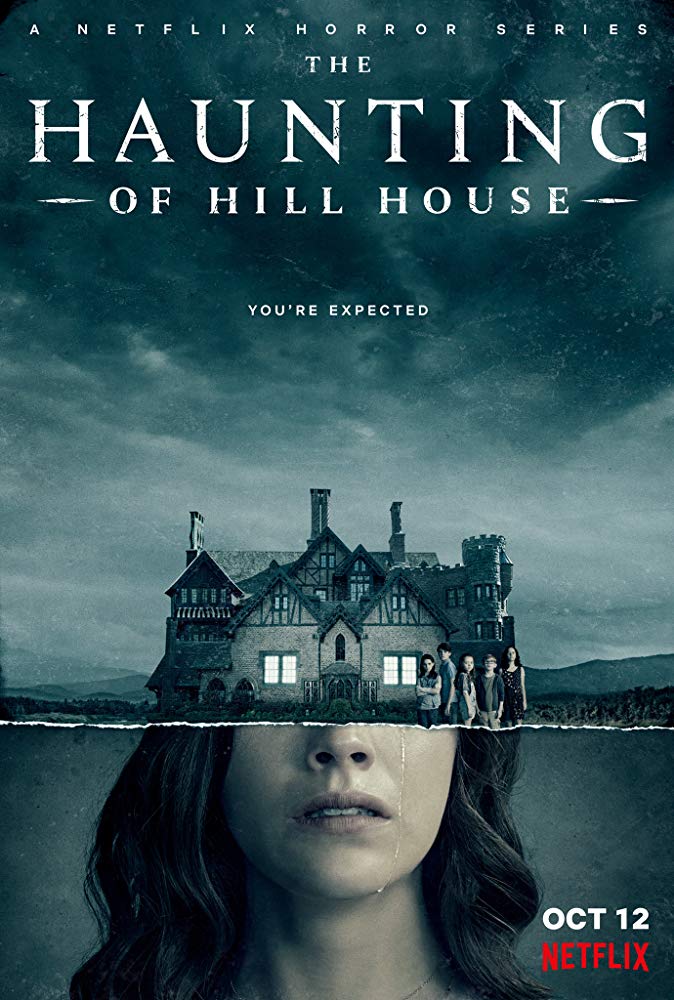 TrunkSpace: So was acting always the plan? Was there a plan B?
TrunkSpace: So was acting always the plan? Was there a plan B?
Longstreet: No. I mean, I loved music, and I wrote a lot of songs, and I did that, but if I ever got discouraged with acting, I would go back to working with the mentally handicapped. I was a medical counselor, and I loved that because it was nothing about me. The emphasis was all off me, and I could get refreshed that way through other people and then get back at it. I’ve stopped for periods of time and I tried to live in Wilmington, North Carolina, and be a normal guy for five years, but I’ve never been more depressed in my life.
TrunkSpace: Creatives tend to have a gypsy soul.
Longstreet: Yes, and you can put as many blankets as you want over it, but that gypsy soul will burrow right out again.
It was something that… I dared to dream, and the negative critic that we all have in our heads told me it would probably never happen, but I couldn’t stop. I was just too in love with it.
TrunkSpace: And thank God you didn’t stop. Your story is very inspirational. It’s a powerful message for people not to give up on their dreams.
Longstreet: I hope so. I would love it if someone could look at it and feel the same way, because I literally… 10 years ago, I felt as lost as ever probably. But I started doing it myself. I started finding scripts and executive producing things and giving myself really good roles in independent film, and that’s really hard. I don’t think I ever want to produce again, but if I hadn’t have done that, if I hadn’t made my own venue, I never would have even gotten to now.
TrunkSpace: Is success scary? Can it all become overwhelming at times?
Longstreet: Yeah, it is. That’s why I stay out of it so much. I try not to read anything and just live my own small life and hopefully am not cognizant of all that, because I think anyone can get sucked up and wrapped up in that.
I had a couple people point at me in the Atlanta airport, and I was like, “Ooh, that’s going to be a new thing.” (Laughter) I feel like a paranoid person anyway, so maybe it’s probably equal. Maybe it’s just sort of like leveled out now. (Laughter) But yeah, it’s a little shocking. Now you can’t walk out of your house after not showering for two days and go anywhere. You’ve got to be a little more careful.
Season 1 of “The Haunting of Hill House” is available now on Netflix.


